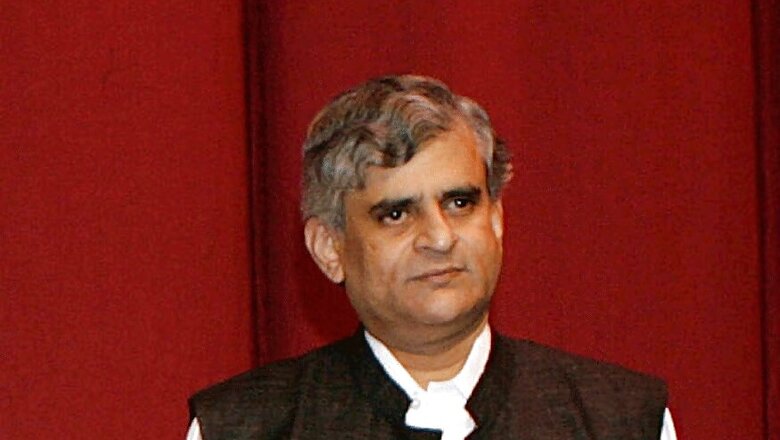
views
New Delhi: Loan waivers are not a cure for farm crisis but just a prescription for a short-term relief, according to veteran journalist P Sainath, who is one of the most respected voices in the country on rural economy issues.
Speaking to CNN-News18's Anubha Bhonsle, Sainath explained why our farmers are so angry, delved into the root cause of the debt crisis, demands for loan waivers and strikes, and talked about the way forward to seek a long-term solution.
Sainath said the only way to help farmers is to implement a proper farm credit functioning system, but it will take time and deliberations. He said that the central government should call a 10-day special session of the Parliament to debate the issues, hear representations by farmer bodies and take a call on the Swaminathan Commission Report, which was released exactly 10 years ago but has been gathering dust since then.
Our governments, he said, are instead more interested in taking shortcuts like loan waivers, which do not even reach their intended beneficiaries most of the time.
He gave the example of the last loan waiver in Maharashtra in 2008 by then agriculture minister Sharad Pawar, where he says the six richest districts in the state took home more than half the value of the loan waiver.
"In our country, we have developed semantics such that if a poor person gets 5 paise, it is called subsidy, but if a rich person gets Rs 5 billion, it is called incentive," he said.
Farm loans make a very small share of the non-performing assets (NPAs) of banks, Sainath says, but the country focuses on their bad debts instead of the lakhs of crores that corporates owe to the banks. The RBI had recently pulled up 12 unnamed individuals who are responsible for 25% of NPAs in the country.
Sainath said that the National Bank for Agriculture and Rural Development (NABARD), a bank that was specifically set up for agriculture credit, too had recently accepted that nearly 70% of its loans went to the agriculture business or the corporate sector and not farmers.
In Maharashtra, 53% of NABARD loans are disbursed in Mumbai and not the rural belts, he says. "Around 53% of outlay is for the city of Mumbai and its suburbs. Who are all these posh, hungry and starving farmers residing in Malabar Hills and Cuffe Parade?" he asked.
According to the veteran journalist, the biggest issue for the farmers is the Minimum Support Price (MSP) promised by the government and not the loan waivers. In the run up to the Lok Sabha elections in 2014, NDA had promised farmers will be paid the cost of production plus 50% for their crops, but has not delivered. "Now, the Centre has calmly passed the buck on to the states," he said.
The demonetisation move has also aggravated the situation for farmers, says Sainath, claiming that cooperative banks took a big hit due to slowdown in trade farm activity and the adverse effects of it are unfolding now. He said he does not see any plan and anybody equipped to deal with the issues. Pointing out at the Maharashtra cabinet, he said not one of the ministers is from a rural background or an expert on farmers' issues.
However, he said that only the Modi government is not to blame as successive governments in the last 30 years have not done anything to address issues. He says that before Union Finance Minister Arun Jaitley, Pranab Mukherjee and Sharad Pawar too claimed to have doubled agricultural credit, but the money never goes to farmers.
Sainath said the largest number of farmer suicides had taken place when Pawar was the agriculture minister. "Although the number of suicides has come down, it is only because the farmer population has come down and not because of government policies," he said.
Of this, the three states – Maharashtra, Madhya Pradesh and Chattisgarh - accounted for 68% of all farmer suicides in the country in 2015.
On the politics playing out in Madhya Pradesh over farmer protest, Sainath says that there are always political overtones in such protests. Farmer protests also took place under previous UPA, Congress, UF and NDA governments, he pointed out.
"There is plenty of politics on both sides. I am just waiting for someone to blame ISI for it," he said, adding that everything that goes wrong is someone else's conspiracy.


















Comments
0 comment